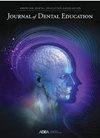Self-assessment of professional competence and influential factors among dental students
Abstract
Background and objective
Competency-based education is recognized for evaluating dental students' knowledge and skills. However, practical management training, which is the hands-on education and experience in managing operations and patient interactions, does not align fully with this framework. This study aims to assess professional competence and related factors among dental students using self-assessment, contributing to dental education literature, and identifying areas for improvement.
Methods
A cross-sectional study included 50 total senior dental students from a top-ranked dental school. With a response rate of 100%, data were collected using a structured questionnaire with three sections: personal information, self-assessment of professional competency, and factors influencing competency. Statistical analysis, including descriptive statistics and tests like Chi-square and ANOVA, analyzed the data.
Results
The average self-reported professional competence score was 71.15 with a standard deviation of 3.05. Associations between age, gender, grade point average (GPA), and self-reported professional competence were assessed, with no significant links found (p > 0.05). Influential factors included interaction with clinical instructors (69.24%) and interest in dentistry (67.03%). No significant differences in self-reported professional competence were observed among students residing on-campus versus off-campus.
Conclusion
Age, gender, and GPA do not significantly impact dental students’ self-reported professional competence. Positive interaction with instructors and interest in dentistry contribute to skill development. Practical experience and effective educational relationships are crucial. Dental education institutions should improve clinical competence by fostering strong student-instructor relationships, increasing hands-on clinical training, and fostering student interest in dentistry.

 求助内容:
求助内容: 应助结果提醒方式:
应助结果提醒方式:


